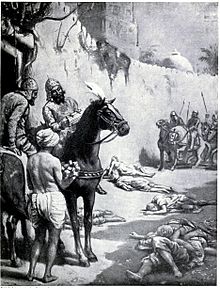The point is to keep trying new things, meeting new people, visiting new places. Once you settle into a rut, no matter how fun that rut may seem, you stagnate. You might as well be dead.
The poor man retains the prejudices of his forefathers without their faith, and their ignorance without their virtues; he has adopted the doctrine of self-interest as the rule of his actions, without understanding the science which puts it to use; and his selfishness is no less blind than was formerly his devotedness to others. If society is tranquil, it is not because it is conscious of its strength and its well-being, but because it fears its weakness and its infirmities; a single effort may cost it its life. Everybody feels the evil, but no one has courage or energy enough to seek the cure. The desires, the repinings, the sorrows, and the joys of the present time lead to no visible or permanent result, like the passions of old men, which terminate in impotence.
Entire careers, entire life paths, are carved out by people dipping their baby toes into small ponds and suddenly discovering a love for something they had no idea would capture their imaginations. In my situation I have cracked MBA entrance, then there for many years as a HR which couldn’t feed my craving spiritualism or creativity. At some point of my life, I found myself stucked in some area – morally, intellectually, physically, spiritually, creatively. The term creativity itself a spirituality (which is a different topic to discuss next). I tried writing on spiritual journals to motivational speech to Yoga teaching to Story telling and finally making films. My present career status is : I AM A DOER. I am freelancer, an tiny winny entrepreneur, a writer, yoga and motivational speaker and a filmmaker. May be few years later I would like to try something new again. I will keep evolving. And this is how I literally live everyday. But this journey which was not so easy, not so easy to survive in this materialistic world, sometimes not even rational too. I Life is dynamic. It is not static. All living things are either growing and increasing toward maturity, or deteriorating toward decay and death. So how about you — are you growing?
How do I know that I am in a Stagnation. These are the most significant signs :
- If you have been experiencing chronic procrastination on your goals
- If you don’t ever feel like doing anything
- If you keep turning to sleep, eating, games, mindless activities and entertainment for comfort
- If you know you should be doing something, but yet you keep avoiding it
- If you have not achieved anything new or significant now relative to 1 month, 2 months or 3 months ago
- If you have a deep sense of feeling that you are living under your potential
Dr. Chanter, in his brilliant History of Human Thought in the Twentieth Century, has made the suggestion that only a very small proportion of people are capable of acquiring new ideas of political or social behaviour after they are twenty-five years old. On the other hand, few people become directive in these matters until they are between forty and fifty. Then they prevail for twenty years or more. The conduct of public affairs therefore is necessarily twenty years or more behind the living thought of the times. This is what Dr. Chanter calls the “delayed
realisation of ideas.
In summary, here’s a list of things I try to remind myself whenever I’m faced with trying something new:
- Trying something new often requires courage. And needing to summon courage is itself a benefit. Once it’s released it will, like its second cousin once removed, anger, indiscriminately engulf everything in its path. How wonderful to open a flood of courage and be carried on its waves to destinations of unexpected benefit.
- Trying something new opens up the possibility for you to enjoy something new. Entire careers, entire life paths, are carved out by people dipping their baby toes into small ponds and suddenly discovering a love for something they had no idea would capture their imaginations.
- Trying something new keeps you from becoming bored. Even I, the most routine-loving person I know, become bored if I’m not continually challenged in some way. And it’s not the new challenges I’m eager to take on that represent my greatest opportunities for growth—it’s the ones I’m not.
- Trying something new forces you to grow. We don’t ever grow from taking action we’ve always taken (the growth that enabled us to be able to take it has already occurred). Growth seems to require we take new action first, whether it’s adopting a new attitude or a new way of thinking, or literally taking new action. Thrusting yourself into new situations and leaving yourself there alone, so to speak, often forces beneficial change. A spirit of constant self-challenge keeps you humble and open to new ideas that very well may be better than the ones you currently hold dear (this happens to me all the time).








You must be logged in to post a comment.